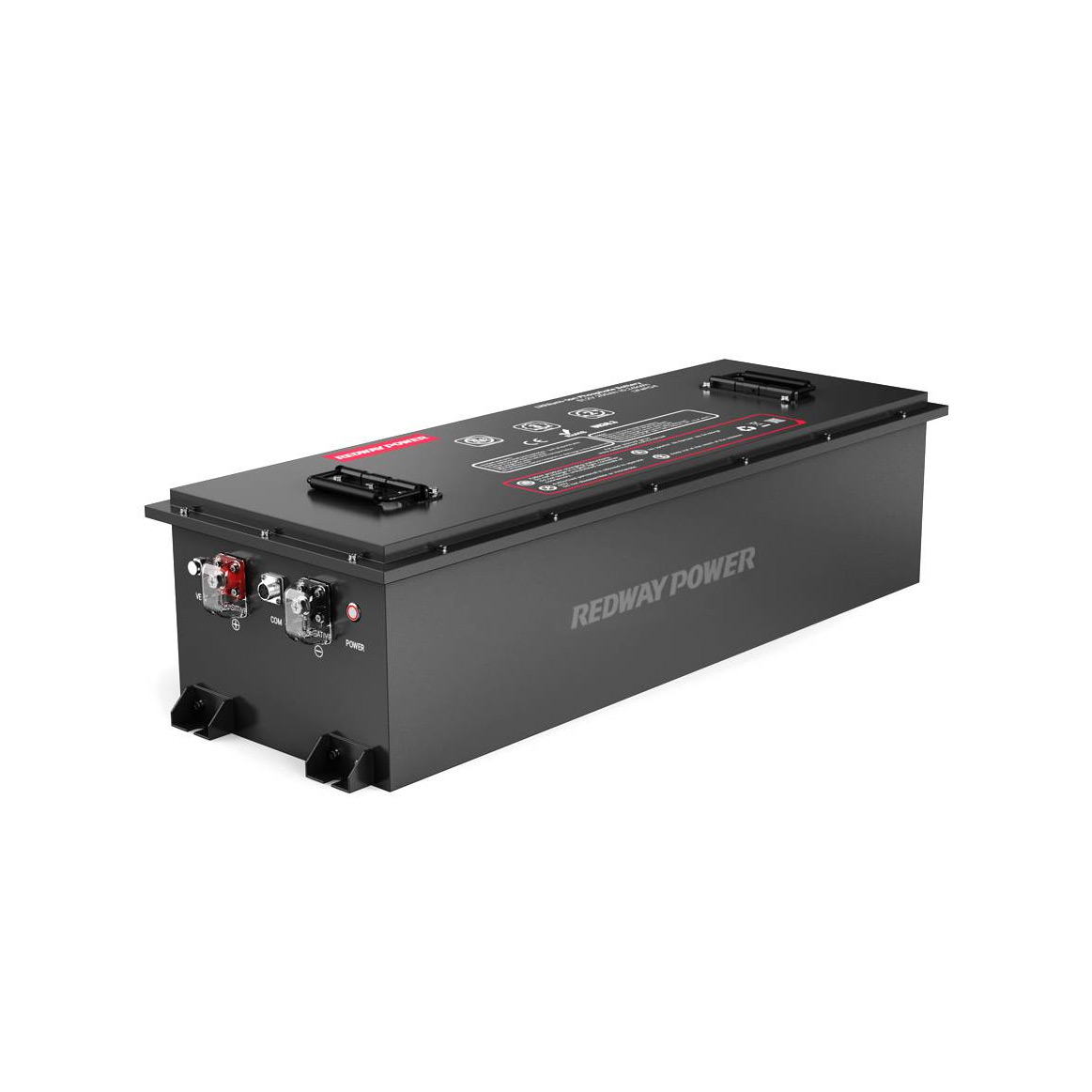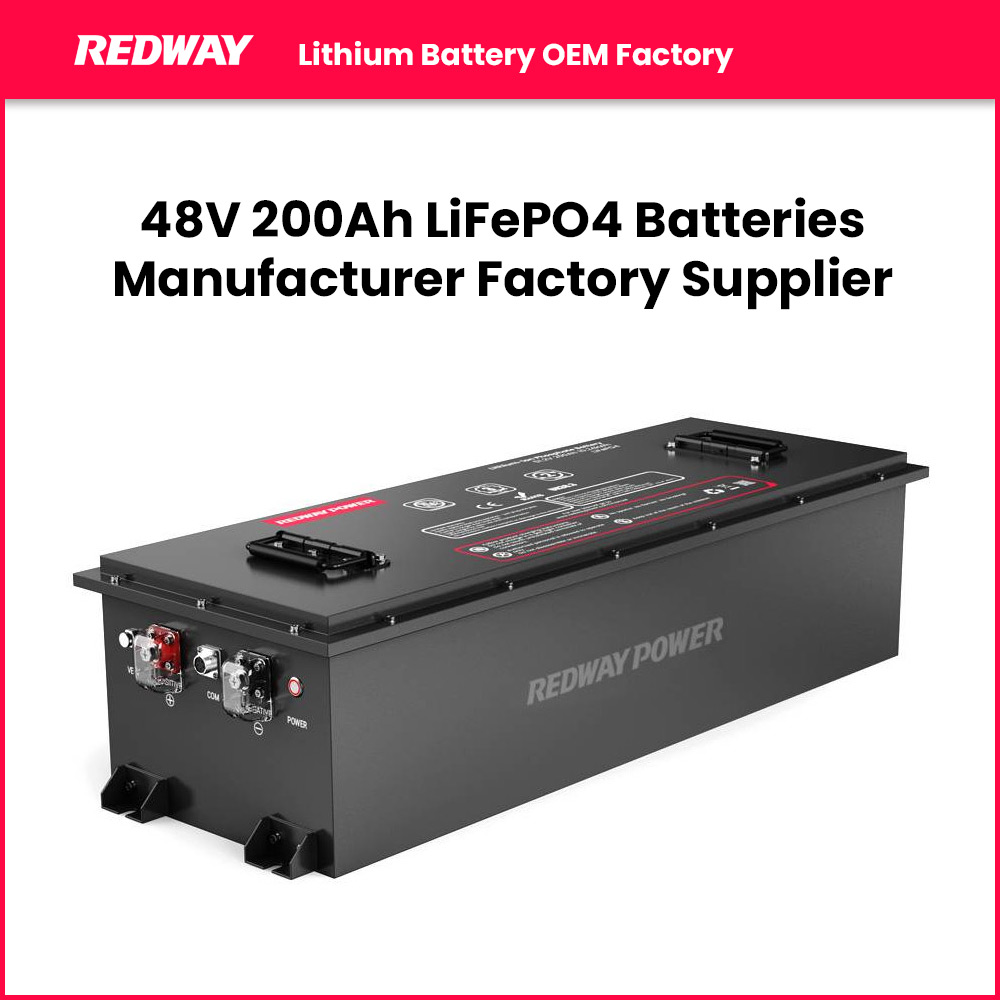Product Cateogries
48V 200Ah LiFePO4 Batteries Manufacturer Factory Supplier
Redway Battery stands at the forefront as a leading 48V 200Ah LiFePO4 Batteries Manufacturer, Factory, and Supplier, delivering state-of-the-art energy storage solutions. Our commitment to excellence resonates through the production of premium 48V 200Ah LiFePO4 batteries, renowned for their exceptional performance, safety features, and prolonged lifespan. As a reliable supplier, we prioritize innovation and quality assurance, ensuring that our batteries adhere to the highest industry standards. Opt for Redway Battery as your trusted partner for 48V 200Ah LiFePO4 batteries, where cutting-edge technology converges with sustainability to provide a dependable power source for diverse applications.
🔥 Big Deals 🔥
Factory Wholesale
from China OEM Manufacturer!
Discover the exceptional performance of Redway Battery’s 12/24/36/48/60/72/96V LiFePO4 Batteries! Up to 6000 times deep cycles (DOD 80%). Perfectly suited for various applications, such as Energy storage, RVs, Solar systems, Marine vessels, Yachts, and Emergency power supply needs, our Lithium LiFePO4 Batteries are the reliable choice for all your energy storage requirements. Reach out for a Quick FREE Quote! 👉👉👉
🔥Buy 10 lithium-ion batteries at wholesale prices for the price of 1 or 2 retail batteries.🔥
🔥We proudly do OEM contract manufacturing for many big brands.🔥
What are the advantages of using a 48V 200Ah LiFePO4 battery?
The 48V 200Ah LiFePO4 battery features high energy density for efficient power storage, a lifespan of 2000-6000 cycles, and fast charging capabilities. Its excellent thermal stability enhances safety compared to other lithium batteries. Additionally, it’s environmentally friendly and requires minimal maintenance.
How do I choose a reliable manufacturer or factory for 48V 200Ah LiFePO4 batteries?
Select manufacturers with strong reputations, relevant certifications (e.g., IEC62619, ROHS), and positive reviews. Ensure they offer warranties and customization options. Established names like Ritar Power, Redway Power, and SAKO Power are known for quality LiFePO4 batteries.
What are the key specifications of a typical 48V 200Ah LiFePO4 battery?
A typical 48V 200Ah LiFePO4 battery includes a nominal voltage of 48V, capacity of 200Ah, energy storage of 9.6kWh, weight of 100-120 lbs (45-54 kg), dimensions of approximately 600mm x 400mm x 200mm, and supports continuous discharge current up to 100A.
What applications are best suited for 48V 200Ah LiFePO4 batteries?
These batteries are ideal for solar energy storage, electric vehicles, backup power solutions, and off-grid living. Their high capacity and efficiency make them suitable for both residential and commercial use.
Can I customize my order of 48V 200Ah LiFePO4 batteries?
Yes, many manufacturers offer customization options for 48V 200Ah LiFePO4 batteries, allowing you to adjust specifications like capacity, terminal types, and additional features to suit your needs.
How do I ensure quality when purchasing from a manufacturer or factory?
To ensure quality, select reputable manufacturers with positive reviews, request product certifications, inquire about warranty policies, and consider obtaining samples for testing before placing larger orders.
What are the typical costs associated with 48V 200Ah LiFePO4 batteries?
Typical costs for a 48V 200Ah LiFePO4 battery range from $2,000 to $3,500, depending on the manufacturer and additional features like built-in Battery Management Systems (BMS).
How long does it take to receive an order from a manufacturer or factory?
Shipping times for a 48V 200Ah LiFePO4 battery typically range from 2 to 6 weeks, depending on the manufacturer’s location and order size. It’s advisable to confirm delivery timelines when placing an order.
What safety certifications should I look for in a 48V 200Ah LiFePO4 battery?
Ensure the battery has safety certifications such as IEC62619, ROHS, CE-EMC, and UN38.3 to confirm compliance with international safety standards and ensure reliable performance.
What are the future trends in lithium battery technology?
Future trends include advancements in energy density, faster charging, improved safety features, and cost reduction. Innovations in recycling methods and sustainable materials will promote wider adoption across renewable energy storage and electric vehicles.



